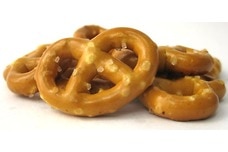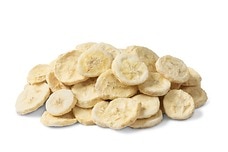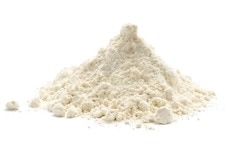IBS Diet
Nearly 11% of the population suffers from irritable bowel syndrome, or IBS (Canavan et. al., 2014). This condition results in considerable gastrointestinal distress and may cause you to lack the nutrients you need. Dietary factors can trigger IBS symptoms, making it important to identify the foods that contribute to your symptoms versus those that are safe to eat.
What Is Irritable Bowel Syndrome?
Irritable bowel syndrome, or IBS, is considered a chronic functional disorder that affects the gastrointestinal system (Canavan et al., 2014). There are three major forms of IBS: the predominantly diarrhea type (IBS-D), predominantly constipation type (IBS-C), and a mixed type with both diarrhea and constipation (IBS-M). Symptoms of IBS vary from person to person. The most common symptoms include (Mayo Clinic, 2015):
- Abdominal pain
- Abdominal cramps
- Gas
- Feeling bloated
- Diarrhea
- Constipation
- Stool that contains mucus
The symptoms of IBS are very uncomfortable. However, it is important to distinguish them from other diseases of the gastrointestinal system, such as Crohn’s disease or ulcerative colitis. IBS is considered a functional disorder, meaning that it causes a disruption to bowel functions but does not result in the widespread inflammation that is characteristic of Crohn’s disease and ulcerative colitis (Crohn’s and Colitis Foundation of America, 2012). Unlike these other diseases, IBS does not increase your risk for colon cancer (Mayo Clinic, 2015).
Although the precise causes of IBS remain unknown, there appear to be several factors that contribute to symptoms. People with IBS often have alterations to the strength and duration of the rhythmic intestinal contractions that move material through the colon (Mayo Clinic, 2015). Contractions that are stronger or more frequent than usual lead to diarrhea, while weaker or less frequent contractions cause constipation. There is also some evidence that alterations in the signals between the gastrointestinal nervous system and the brain may contribute to IBS symptoms. People with a hypersensitivity to gastrointestinal distress or altered neurotransmitter balance in the intestines may be more likely to develop IBS (Johns Hopkins School of Medicine, 2015).
IBS is a chronic condition, meaning that many people with the syndrome must cope with it for years. Fortunately, it is possible to manage IBS symptoms by identifying and avoiding certain triggers.
Methods of Controlling IBS Symptoms
IBS symptoms may wax and wane depending on your life circumstances. Identifying triggers for IBS can help you manage the condition. Common IBS triggers include (Mayo Clinic, 2015):
- High stress. When people with IBS are under a great deal of stress, their symptoms often worsen. Thus, you may notice that you have more gastrointestinal problems when facing a major deadline at work or when having trouble in your relationship. Learning how to manage stress is a great way to reduce your IBS symptoms.
- Foods. The foods you eat can certainly trigger IBS symptoms. Exact food triggers vary from person to person. It is not yet clear whether food allergies or sensitivities contribute directly to IBS symptoms or whether certain foods trigger symptoms through another physiological process.
- Hormones. Women are 1.5 to 3 times more likely to report IBS symptoms than men (Canavan, 2014). This may be because of hormonal fluctuations in women that trigger a gastrointestinal response. Many women report that their IBS symptoms are worse during their menstrual periods, suggesting that hormonal changes may play a role.
- Illness. Other illnesses, especially those that cause diarrhea or gastrointestinal distress, can also trigger IBS symptoms. Treating the acute illness may cause these symptoms to go away.
How Food Impacts Symptoms of IBS
The foods you eat can have a profound impact on your IBS symptoms. When learning how to manage your symptoms, it can be helpful to keep a food diary listing all of the foods you eat. This can help you link specific foods to an uptick in your IBS symptoms.
Although food triggers vary from person to person, certain foods are more likely to exacerbate IBS symptoms. These include (National Health Service, 2014):
- Carbonated beverages
- Dairy products
- Cabbage
- Beans
- Chocolate
- High fat foods
- Alcohol
- Caffeinated beverages
- Spices
- Highly processed foods, such as chips or cookies
Creating a Nutritionally Complete Diet for IBS
One of the major concerns for individuals suffering from IBS is how to maintain a nutritionally complete diet. Part of this depends on the type of IBS you suffer from. People with the diarrhea (IBS-D) or mixed (IBS-M) types are more likely to become nutritionally deficient than those with the predominantly constipation (IBS-C) type. This is because individuals with chronic diarrhea may have difficulty retaining fluid, absorbing nutrients, and getting the energy their bodies need (Johns Hopkins School of Medicine, 2015). In these cases, a meal replacement shake is a good way to restore lost calories. Additional supplements may be necessary to ensure proper balance of vitamins and minerals. However, the best solution is to manage IBS symptoms by eliminating dietary and lifestyle triggers.
When planning an IBS diet, consider the following recommendations (Johns Hopkins School of Medicine, 2015; Mayo Clinic, 2015):
- Increase fiber intake. People with the constipation (IBS-C) and diarrhea (IBS-D) forms of irritable bowel syndrome benefit from getting enough fiber. Fiber adds bulk to the stool, gently increasing tension on intestinal walls in a way that can help to alleviate IBS symptoms. Eating wheat bran, whole grain foods, and plenty of fresh vegetables will help you get enough; however, some may find cereal grains a problematic source of fiber and should seek to get their fiber from other sources. In fact, Whorell (2009) suggests avoiding all bran fiber as part of an elimination diet for IBS patients. The Johns Hopkins School of Medicine (2015) recommends using fiber supplements such as psyllium husk to relieve constipation associated with IBS.
- Avoid FODMAPs. Certain types of carbohydrates, known as FODMAPs (fermentable oligosaccharides, disaccharides, monosaccharides and polyols), may exacerbate IBS symptoms in some people. Avoid dairy products, high-fructose corn syrup, honey, sorbitol, xylitol, stone fruits, garlic, onion, lentils, and beans to lower your FODMAPs intake. After eliminating these foods, you can gradually reintroduce them one at a time to identify your triggers.
- Avoid gas-causing foods. Carbonated beverages, raw fruits, cabbage, cauliflower, and broccoli often cause gas. Cut these foods out of your diet to reduce IBS symptoms.
- Avoid foods that contain gluten. Evidence linking the consumption of gluten to IBS symptoms is currently limited. However, some patients report that following a gluten-free diet helps them manage their IBS symptoms. Gluten is a protein that is found in wheat, rye, and triticale. Thus, bread, pasta, and other wheat-containing foods should be eliminated on a gluten-free diet.
Medications and Supplements that Can Help People with IBS
There is no cure for IBS, but certain products can help with symptom management. Your doctor may recommend taking over-the-counter anti-diarrheal medications (e.g., Imodium), anticholinergic medications to relieve bowel spasms, selective serotonin reuptake inhibitors to inhibit the activity of gastrointestinal neurons, or antibiotics. It may take some trial and error to find the medications that help you most.
It is also important to get prebiotics and probiotics to ensure you have a healthy gut flora. Your gut is populated by billions of microbes, many of which help you properly digest your food. People with IBS may have an alteration in the prevalence and type of these beneficial gut bacteria. Several scientific studies suggest that probiotic treatment, which aims to balance the levels of healthy gut bacteria, may be effective in alleviating IBS symptoms (Aragon et al., 2010).
Probiotics, or “good” bacteria, can recolonize the gut in a person with IBS, helping to improve gastrointestinal regularity. Prebiotics are nondigestible carbohydrates that pass into the intestines, providing food for probiotic bacteria (Zeratsky, 2014). Yogurt and kefir, a fermented dairy product, contain both prebiotics and probiotics. Probiotics are also found in supplement form, which can be helpful for IBS sufferers who cannot eat dairy products. Meanwhile, whole grains, onions, bananas, garlic, honey, and artichokes are excellent sources of prebiotics (Zeratsky, 2014). Eating a diet that is rich in these foods -- while avoiding any IBS trigger foods -- can help you to manage your symptoms.
IBS Snack Suggestions
While diet is not a cause of IBS and eating these foods may not alleviate symptoms, these snacks and foods were selected with the hope of providing sustenance that is- to some degree- less irritating to the GI tract of one afflicted by the condition.
Healthy Eating
- Healthy Snacks
- Healthy Highlights
- 5 Uses for Cacao Powder
- 5 Ways to Eat Farro
- 6 Best Gluten-Free Foods
- Alcohol and the Body
- Almond Flour Recipes
- Anti-Aging Superfoods
- Beat the Afternoon Slump
- Benefits of a Plant-Based Diet
- Benefits of Baobab
- Benefits of Cashews
- Benefits of Coconut Oil for Hair
- Benefits of Coconuts
- Benefits of Dates
- Benefits of Fenugreek
- Benefits of Garcinia Cambogia
- Benefits of Goji Berries
- Benefits of Kale Chips
- Benefits of Monk Fruit Sweetener
- Benefits of Peanuts
- Benefits of Pecans
- Benefits of Pistachios
- Benefits of Pumpkin Seeds
- Benefits of Spelt Flour
- Benefits of Steel Cut Oats
- Benefits of Sunflower Seeds
- Benefits of Tiger Nuts
- Benefits of Turmeric
- Benefits of Walnuts
- Benefits of Wheatgrass
- Best Food Fads
- Cacao vs Cocoa
- Caffeine-Free Energy Foods
- Chocolate That's Good for You
- Diet vs. Exercise
- Fat Burning Foods
- Food Myths Debunked
- Foods for Bone Density
- Foods for Colon Health
- Foods for Healthy Hair
- Foods for Healthy Skin
- Foods to Help Sleep
- Foods to Reduce Stress
- Green Tea Benefits
- Healthy Baking Flours
- Heart Healthy Habits
- High Protein Health Risks
- How to Boost Your Metabolism
- How to Lose Weight While Aging
- How to Throw a Vegan BBQ
- Kaniwa vs Quinoa
- Little Health Foods
- Low-Carb: Fad or Friend?
- Making Healthier Desserts
- Mediterranean Diet Meal Plan
- Natural Beauty Products
- Nuts for Weight Loss
- Preparing Vegan Meals
- Preventing Muscle Degeneration
- Rare Superfoods
- Reduce Sugar Intake
- Save Time By Going Vegan
- Smarter Snack Swaps
- Smoothie Ingredients
- Soy Protein vs Whey Protein
- Starting a Plant-Based Diet
- Steel Cut vs Rolled Oats
- Sugar Substitutes
- Vegan Proteins
- Vegan Substitutions for Fall Recipes
- Why Go Vegan
- Healthy Meals
- Healthy Recipes
- Sports Nutrition
- Vitamins, Minerals & Nutrients



